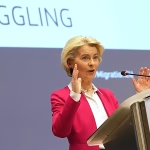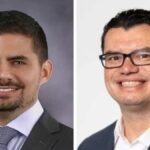In today’s society, the language we use has evolved to include terms related to health and well-being, such as ‘cholesterol level’, ‘blood pressure’, and ‘chronic illness’. These terms have become commonplace in everyday conversations, shedding light on the importance of maintaining good health. However, linguist Uwe Pörksen introduced the concept of “plastic words” in 1988, noting that certain words lack substantial meaning but are used by those in positions of authority to sway opinions.
One key characteristic of plastic words is their global integration, creating the illusion of fulfilling a universal need. Words like ‘development’, ‘communication’, ‘progress’, and ‘information’ carry a sense of authority and indispensability, despite their vague definitions. These terms are often combined with others to amplify their impact, forming impressive-sounding phrases like ‘resource development’ or ‘communication process’. The widespread adoption of these words has led to their colonization and reshaping of everyday language.
The transmission of scientific and technological terms across boundaries has had a significant impact on our language use. Terms like ‘innovation’, ‘integration’, ‘global’, and ‘security/safety’ have become essential in the lexicon of the twenty-first century, conveying a sense of specialization and progress. However, these words can also be seen as tools of domination, shaping our thought patterns and influencing public discourse. The use of plastic words enables those in authority to manipulate definitions and control the narrative.
As plastic terminology infiltrates our daily discourse, it is essential to recognize the risks associated with using such terms. Pörksen’s characterization of these words as “plastic” highlights their malleability and susceptibility to misuse and manipulation. By challenging the imprecision of these terms and seeking specific alternatives, we can push back against the influence of plastic words in shaping our language and thought processes.
It is crucial to consider who is included and excluded when using terms like ‘internet economy’, as this can reveal the barriers faced by certain groups, such as the elderly and economically disadvantaged. By critically engaging with plastic words and questioning their impact, we can better understand how language shapes our perceptions and influences power dynamics. Ultimately, being aware of the role of plastic words in our language can help us navigate complex societal issues and promote clearer communication.








